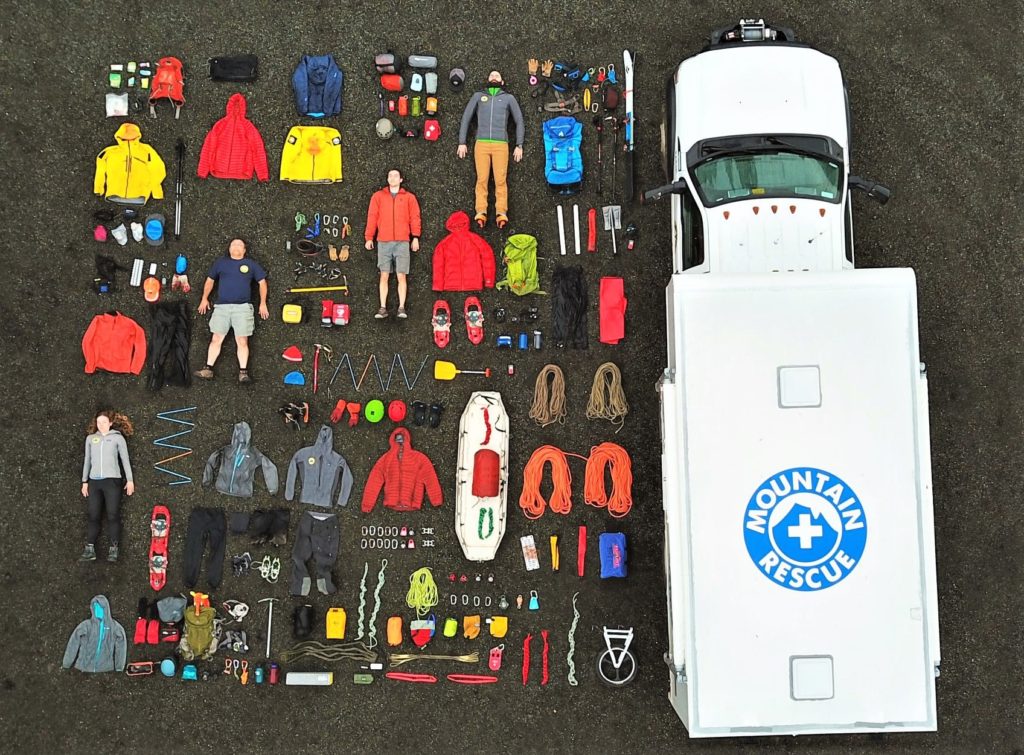Regardless of whether your backcountry adventure is short or long in duration, it’s essential to always be prepared. You never know when the unexpected might become a reality. Below is a list of The Ten Essentials every backcountry traveler should carry.
- Navigation – Be sure to carry a map of the area you intend to travel, a compass, and the knowledge of how to use them. If you use a GPS unit, be sure you are familar with the unit. Bring a map and compass as a backup as electronics can malfuntion unexpectedly.
- Sun Protection – Sunglasses and sunblock should be carried, even on cloudy days. Eye protection should be worn during snow travel to prevent snowblindness which is a painful and dibilitating condition.
- Insulation – Weather can change suddenly. Be prepared for the worst possible weather you could encounter. Items you should include are a waterproof jacket, an extra layer of warmth (such as a fleece sweater), extra socks, gloves, and a warm hat.
- Illumination – In the event your trip lasts longer than anticipated, you could find yourself on trail in the dark. Having a flashlight or headlamp could be the difference between getting off the mountain tonight or having to wait until the next day. Make sure your batteries are fresh, carrying extra is always a good idea.
- First Aid Supplies – There is no exact list of what a person should carry for a particular trip, but here are some suggestions that would be appropriate. Band aids, adhesive tape, gauze pads, tweezers, over-the-counter pain reliever and antihistimine, compression bandage (such as an Ace bandage), and a triangle bandage to act as an arm sling.
- Fire – It can become very cold at night and an emergency fire could be a lifesaver. Some suggestions would be a lighter, firestarter, matches (in waterproof container), chemical heat tabs, etc. Did you know? Dryer lint is an excellent firestarter!
- Repair Kit & Tools – Items can and will break. Build yourself an emergency repair kit to deal with backpacks that won’t zip, tears in clothing, tent poles that snap, etc. Some suggestions are duct tape, knife, safety pin, fabric patches, safety pins, etc.
- Nutrition – Besides bringing a regular amount for the expected duration of your trip, be sure to bring extra in case you are out longer than planned. Foods that require no cooking such as nuts, bars, etc.
- Hydration – Remember that we drink more when we are expending extra energy so account for that when you are deciding how much water to bring. If you plan on filtering or treating water on the way, verify that water will be available and that your filtering system is working correctly before you go.
- Emergency Shelter – For day hikers, this doesn’t have to be a full tent, but something that will provide some warmth and help protect from the elements. Even an emergency space blanket or bivy will provide additional protection.
